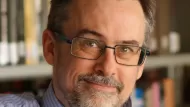Resilience is generally understood as the
degree to which a complex system is flexible enough to respond and adapt
to an externally-imposed force or change and thus persist over time while
retaining its structure and functions. Conversely, a vulnerable system would be
one in which conditions are inflexible, key resources comprise a monoculture,
there is little learning capacity, and choices for addressing crises are
constrained.
We are seeing these concepts being played
out in real time in the present transportation crisis ensuing from the eruption
of the Eyjafjallajokull (pron. ay-yah-FYAH-plah-yer-kuh-duhl) volcano in
Iceland.
With air traffic grounded across most of Europe, hundreds of thousands
of people have been stranded at business or holiday destinations, and the halt
in movement is threatening to drag down Europe's economic recovery. The
airlines are losing hundreds of millions of dollars a day and foodstuffs normally flown into England are running scarce.
In response to the crisis, people have been
turning in unprecedented numbers to alternative forms of international travel,
including trains and cruise ships. According to the Associated Press:
"In major European cities, travel chaos
reigned. Extra trains were put on in Amsterdam
and lines to buy train tickets were so long that
the rail company handed out free coffee. Train operator Eurostar said it was
carrying almost 50,000 passengers between London, Paris and Brussels. Thalys, a high-speed venture of the French,
Belgian and German rail companies, was allowing passengers to buy tickets even
if trains were fully booked.Ferry operators in Britain received a
flurry of bookings from people desperate to cross the English
Channel to France, while London taxi
company Addison Lee said it had received requests
for journeys to cities as far away as Paris, Milan, Amsterdam and Zurich."
Fortunately, Europe has a relatively
advanced high-speed train network in several nations; were this eruption
affecting North America, where rail service has been denuded dramatically over
decades and new investments in high speed rail are only now being planned, the
conditions would be more chaotic by several magnitudes.
While we have heard a great deal over the
years about the need to diversify our transportation systems to reduce
greenhouse gases and to prepare for peak oil, the Eyjafjallajokull eruption
demonstrates that our present transportation monoculture is simply not
sufficiently resilient even under normal conditions, for it is incapable of
responding adequately to unexpected stressors. The lack of diversity and
redundancy in our transportation infrastructure thereby threatens the stability
of every other system that interacts with it, including food, business, tourism
and the countless human needs dependent on it.
The eruption should be yet another wake-up
call to governments that an over reliance on any one transportation system is
reckless and short-sighted. Opponents of investments in high-speed rail need
only consider how grievous this situation could become if, as in the past,
this
volcano continues to erupt for a year or longer. The capacity for
nations -- and the global economy -- to respond to long-term
disruptions to air travel must be taken into account.
For their part, supporters of rail can also
look at the eruption for something else: an alternative vision for urban and
intercontinental life. With air traffic absent from the sky – and the harried
business schedules it makes necessary – many people are finding that the eruption
has yielded a silver lining. Doug Saunders of the Globe and Mail finds that
London has fallen "strangely, peacefully quiet" as the constant roar of jets
has ceased, while others are rediscovering the wonders of leisure time, renewed
freidnships and unhurried urban sight-seeing. In the absence of exotic imported food, grocery chains are once again
turning to British suppliers,
demonstrating the need for viable regional agriculture.
The eruption in Iceland shows us both the fault lines in our
present structures, and a glimpse of what needs to be done. A world in
which air travel is less
frequent and more expensive, and where rail service is more
affordable, desireable and convenient, would be a slower, quieter
place. There
would certainly be disadvantages, and adjustments to be made. But it
would be a
dramatically more resilient world, one capable of adjusting more
readily to the
unexpected or – if necessary – the catastrophic.

Planetizen Federal Action Tracker
A weekly monitor of how Trump’s orders and actions are impacting planners and planning in America.

Map: Where Senate Republicans Want to Sell Your Public Lands
For public land advocates, the Senate Republicans’ proposal to sell millions of acres of public land in the West is “the biggest fight of their careers.”

Restaurant Patios Were a Pandemic Win — Why Were They so Hard to Keep?
Social distancing requirements and changes in travel patterns prompted cities to pilot new uses for street and sidewalk space. Then it got complicated.

Platform Pilsner: Vancouver Transit Agency Releases... a Beer?
TransLink will receive a portion of every sale of the four-pack.

Toronto Weighs Cheaper Transit, Parking Hikes for Major Events
Special event rates would take effect during large festivals, sports games and concerts to ‘discourage driving, manage congestion and free up space for transit.”

Berlin to Consider Car-Free Zone Larger Than Manhattan
The area bound by the 22-mile Ringbahn would still allow 12 uses of a private automobile per year per person, and several other exemptions.
Urban Design for Planners 1: Software Tools
This six-course series explores essential urban design concepts using open source software and equips planners with the tools they need to participate fully in the urban design process.
Planning for Universal Design
Learn the tools for implementing Universal Design in planning regulations.
Heyer Gruel & Associates PA
JM Goldson LLC
Custer County Colorado
City of Camden Redevelopment Agency
City of Astoria
Transportation Research & Education Center (TREC) at Portland State University
Camden Redevelopment Agency
City of Claremont
Municipality of Princeton (NJ)



























